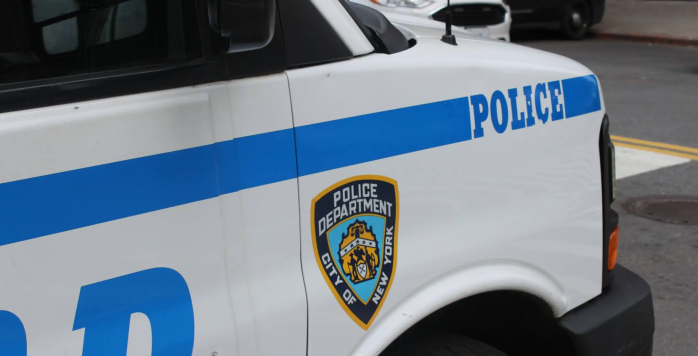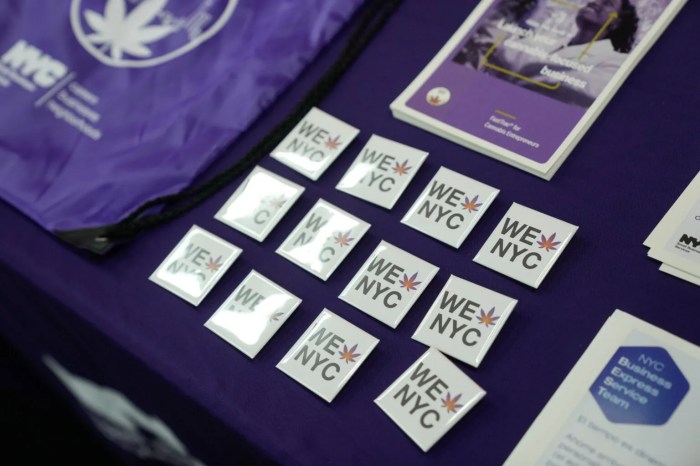Somewhere in the late hours of Monday night, the swirling controversy convinced Arun Aguiar to go see Shakespeare in the Park.
The controversy has to do with some artistic choices in the Public Theater’s production of Shakespeare’s “Julius Caesar.” In it, Caesar looks like President Donald Trump. Long tie, bright hair, a Slavic-accented wife.
Spoiler alert: Caesar is stabbed to death in the middle of the historical drama. Another spoiler: Things don’t exactly go swimmingly for the senators who do the stabbing.
Neither the historical accuracy nor Shakespearean English stopped mostly conservative outlets like Fox News from getting angry about the prospect of a Trump-like character being assassinated on stage, abounding examples of other similar modern takes on the play be damned. Soon, Donald Trump Jr. was tweeting the Fox News story. On Monday, the controvery grew when corporate sponsors Delta and Bank of America pulled their support for the production.
The hot takes are in full swing, and the Public Theater vows its show will go on until its Sunday finale: but has the controversy changed the dynamics of that venerable New York institution, the Shakespeare in the Park free ticket line?
Politics in the Park
Aguiar might have been the most visible new feature on the line Tuesday that wended its way gracefully through the 80s in western Central Park. The political controversy prompted attendance by the self-described full-time activist from Canarsie who wouldn’t say his age but is old enough to qualify for the Public Theater’s senior citizen tickets.
He spent Monday night listening to music at Arlene’s Grocery and decided he’d just stay out until morning. He passed some hours in and outside a Punjabi deli and got to the park around 7 a.m., sporting his trademark political buttons: “Black Lives Matter,” “Go Obama,” “Invest in Libraries” and “Girls Just Wanna Have Guns,” among others.
When he arrived, he didn’t find any pro-Trump protesters to ogle his buttons: “Maybe they’re all beer drinkers,” and 7 a.m. was too early, he said. Still, he looked forward to seeing the play.
All was peaceful along the line despite the internet battles raging about Caesar’s costume. The only sign of a disturbance: others there in the flesh said the surprise media attention had piqued their interest or at least tweaked their plans.
For Cait Williamson, 25, the hubbub over a Trump-like Caesar was a reason to get to the park a little earlier, around 6:40. She figured the buzz might might make things more crowded.
What frustrated her was that critics seemed to be “misconstruing” the play, which she reads as a clear warning against assassination. And art should be political, and should touch a nerve.
“The most interesting thing about this is people are talking about it,” she said, which they were: quietly, while waiting, up and down the line.
Tickets are hard to get
The usual elements of the free ticket line were there, too. The flutist moving his music stand down the path, busking for tips, switching to saxophone a half-hour before the noon ticket distribution. Would-be patrons sat or read or slept, grumbled about the flutist, reassured each other that it wouldn’t be long now before tickets were passed out. Security officers and staffers quietly patrolled for rulebreakers.
There were the people who’d arrived pre-sunrise, like George Williams and his family. Williams, 67, was No. 3 in line and came prepared with a tent. A Jamaican native who says he’s been coming to Shakespeare in the Park for 35 years, Williams said the modern take on Caesar was “fitting” and “timely.” He was eager to see if Shakespeare’s words in this production could shine a light on our contemporary political situation.
That’s the kind of optimism, of course, that you get from the front. At the line’s winding end, where dozens of people were told repeatedly by staffers that they had essentially no chance at getting in, there was despair about both fading chances to snag a seat and a corporate, politically correct attack on NYC’s treasured summer tradition. An attack that hits closer to home than any far-away criticism of comedian Kathy Griffin’s bloody pictures.
“Why should we all have beauty,” said Cedric Hill bitterly of the sponsors’ decisions to betray the play. What their backstabbing really meant was that those corporate entities had no interest in supporting free theater in NYC.
That was sad, said Hill, 44, a film and stage director. He had come as an individual protest. “I’m going to stand my ground,” he said, just as he had in the touring production he worked on that dealt with bullying. That had met some resistance, but it got through to many viewers, Hill said, and elicited new conversations. Art would not be silenced.
But Hill would have to try again to get “Julius Caesar” tickets. He’d arrived around 10 a.m., slowed by the slight tardiness of his bashful student companions. Instead, they planned to go see a German film screening downtown later that evening. Always something else to do in New York.

















